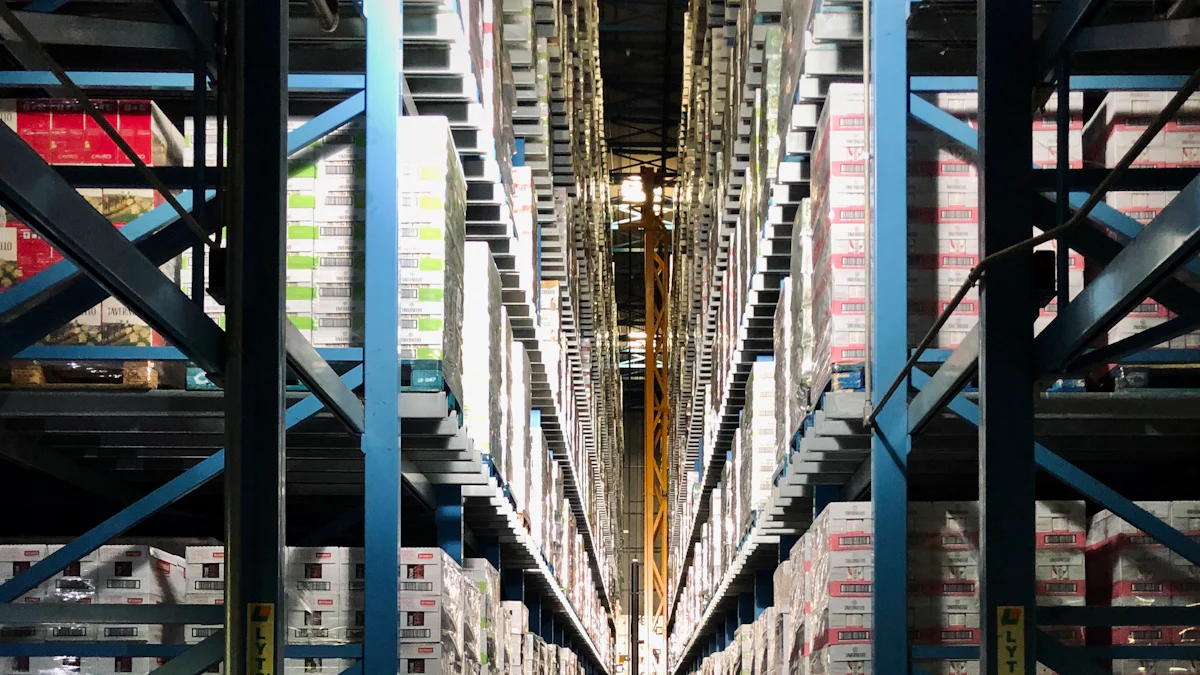The Sustainable Approach to Tackling Supply Chain Risks

Sustainability plays a pivotal role in risk management in supply chains, offering a myriad of benefits such as reduced costs, improved quality, and better risk mitigation. According to a McKinsey report, companies focusing on sustainable practices within their supply chains are likely to witness significant breakthroughs in performance. Notably, 25% of organizations have already experienced increased revenue due to their sustainability efforts. As 55% of executives anticipate better operational risk management in supply chains in the near future, it is evident that prioritizing sustainability is key to long-term success.
Understanding Risk Management in Supply Chains

Definition and Importance
Risk management in supply chains is a critical process that involves identifying, assessing, and mitigating potential risks to ensure the smooth flow of goods. Effective risk management plays a pivotal role in enhancing operational efficiency and resilience within supply chains. By proactively addressing risks, organizations can minimize disruptions and maintain a competitive edge in the market.
Key Concepts
Key concepts in risk management include hazard identification, risk assessment, and risk mitigation strategies. Hazard identification is crucial for minimizing risks by pinpointing potential sources of harm or danger within the supply chain. Subsequently, conducting a thorough risk assessment allows companies to evaluate the likelihood and impact of various risks on their operations. Implementing robust risk mitigation strategies enables organizations to develop contingency plans and safeguards against potential vulnerabilities.
Benefits of Effective Risk Management
Implementing a comprehensive risk management strategy offers numerous benefits to organizations operating within complex supply chains. These benefits include building resilience, navigating uncertainty, ensuring business continuity, avoiding disruptions, reducing costs, improving quality, enhancing customer satisfaction, complying with regulations, protecting brand reputation, and fostering sustainability. Companies that prioritize effective risk management are better equipped to respond to unforeseen challenges and maintain operational excellence.
Common Risks in Supply Chains
Supply chains are susceptible to various internal and external factors that pose significant risks to operations. Identifying these common risks is essential for developing tailored risk management strategies that address specific vulnerabilities within the supply chain network.
Internal and External Factors
Internal factors such as inefficient processes, lack of transparency, inventory mismanagement, or poor supplier relationships can disrupt supply chain operations. On the other hand, external factors like global economic instability, natural disasters, geopolitical conflicts, cyber-attacks, or regulatory changes present additional challenges for organizations. Understanding the interplay between internal and external factors is crucial for mitigating risks effectively.
Examples of Common Risks
Several examples illustrate the diverse nature of risks that can impact supply chains:
Financial Risks: Fluctuations in currency exchange rates or market volatility can affect financial stability.
Compliance/Legal Risks: Non-compliance with industry regulations or legal requirements may result in penalties or reputational damage.
Environmental Risks: Climate change-related events or environmental disasters can disrupt logistics and sourcing activities.
Geopolitical Risks: Political instability or trade disputes between nations can lead to supply chain disruptions.
By recognizing these common risks and their potential implications on supply chain operations, organizations can proactively implement measures to mitigate these threats effectively.
Sustainable Strategies for Risk Management

Implementing Green Practices
In the pursuit of sustainable risk management in supply chains, organizations are increasingly implementing green practices to reduce their environmental impact and enhance operational efficiency. By embracing eco-friendly initiatives, companies can not only contribute to a healthier planet but also create a more resilient and cost-effective supply chain network.
Reducing Carbon Footprint
One of the primary objectives of reducing carbon footprint is to minimize greenhouse gas emissions throughout the entire supply chain process. By optimizing transportation routes, utilizing energy-efficient technologies, and promoting recycling programs, companies can significantly decrease their carbon footprint. This proactive approach not only benefits the environment but also reduces operational costs in the long run.
Sustainable Sourcing
Sustainable sourcing involves procuring goods and services in an ethical and environmentally responsible manner. Companies are increasingly prioritizing suppliers that adhere to sustainable practices, such as fair labor conditions, minimal waste generation, and renewable resource utilization. By partnering with like-minded suppliers, organizations can build a more transparent and socially responsible supply chain ecosystem.
Leveraging Technology
The integration of advanced technologies plays a pivotal role in enhancing risk management in supply chains by improving visibility, efficiency, and security across various operations. Leveraging cutting-edge solutions enables companies to stay ahead of potential risks while fostering innovation and sustainability within their supply chain networks.
Role of AI and Automation
Artificial Intelligence (AI) and automation have revolutionized traditional supply chain processes by streamlining operations, predicting demand patterns, and optimizing inventory management. AI-powered algorithms can analyze vast amounts of data to identify potential risks proactively and recommend strategic interventions. Automation further enhances efficiency by reducing manual errors and accelerating response times during unforeseen disruptions.
Enhancing Cybersecurity
As digitalization continues to transform supply chain landscapes, enhancing cybersecurity has become paramount for safeguarding sensitive data and maintaining operational continuity. Cyber threats pose significant risks to supply chain operations, including data breaches, ransomware attacks, and system vulnerabilities. Implementing robust cybersecurity measures such as encryption protocols, access controls, and threat detection systems is essential for mitigating cyber risks effectively.
Building Resilient Supply Chains
Developing resilient supply chains is crucial for navigating uncertainties, adapting to changing market dynamics, and ensuring business continuity in the face of disruptions. By diversifying suppliers geographically or establishing alternative sourcing options, organizations can mitigate risks associated with single points of failure while enhancing agility within their supply chain frameworks.
Diversification of Suppliers
Diversification of suppliers involves spreading sourcing activities across multiple vendors to reduce dependency on a single source. This strategy minimizes the impact of supplier-related risks such as production delays, quality issues, or geopolitical instability. Engaging with a diverse supplier base not only strengthens resilience but also fosters innovation through collaborative partnerships.
Flexible Logistics
Maintaining flexible logistics capabilities enables organizations to adapt swiftly to changing market conditions or unexpected disruptions. By leveraging agile transportation networks, dynamic warehousing solutions, and real-time tracking systems, companies can optimize their logistics operations for maximum efficiency and responsiveness. Flexibility in logistics ensures timely deliveries, minimizes lead times, and enhances overall customer satisfaction.
Improved sustainability of a supply chain can provide a wide range of benefits, including reduced costs, improved quality, better risk management, and increased environmental sustainability.
Today's organizations must take account of all aspects of sustainability when managing their operations. A more sustainable supply chain can deliver tangible improvements and benefits for organizations in terms of environmental, social equity, and economic development.
See Also
Preparedness in Action: JUSDA's Resilient Supply Chain Management
Seamless Success: Attaining Supply Chain Continuity
Transforming Transportation: The Influence of Supply Chain Innovation
Unveiling JUSDA's Cutting-Edge Supply Chain Solutions
Assessing Your Supply Chain's Effectiveness: Discover Today!
